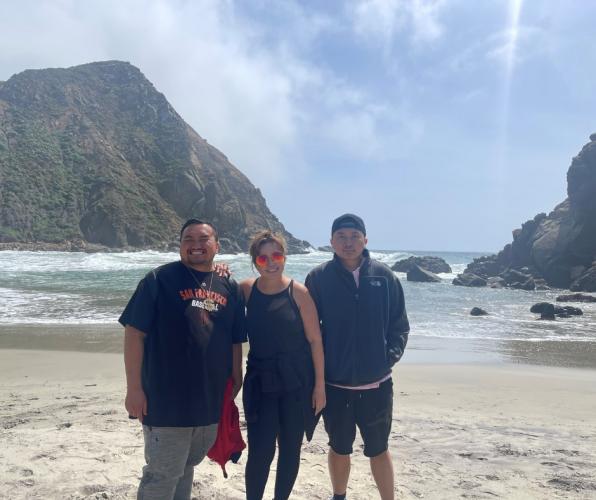Maribeth
Service Coordinator
 Maribeth has worked at Alta
California Regional Center since 2014 as a Service Coordinator.
She is a mother to two children with autism, and has both the
lived and professional experience that allows her to support and
connect with the families she works with. Working at ACRC is more
than a job for her, it is her life and she seeks to improve the
lives of those she works with.
Maribeth has worked at Alta
California Regional Center since 2014 as a Service Coordinator.
She is a mother to two children with autism, and has both the
lived and professional experience that allows her to support and
connect with the families she works with. Working at ACRC is more
than a job for her, it is her life and she seeks to improve the
lives of those she works with.
In 2002, Maribeth and her first-born son migrated from the Philippines to join her husband in California. At the age of one, Maribeth could see that her son was different and that he needed help. After seeking the professional opinion of doctors in California, they were referred to Alta California Regional Center. Once her son became a client and after meeting the Service Coordinator assigned to her son’s caseload, Maribeth realized that she wanted to work in the same field. But she couldn’t realize this goal for eight years as she stayed home to be a caregiver for her son while her husband worked in Iraq.
During that time, besides the difficulties of navigating care for her son as a “single” parent while her husband was overseas, there were challenges because the services available in the early 2000s were limited and they did not have a bilingual Service Coordinator. In 2005, she became a mother to her second-born son who was later on diagnosed with autism, and it doubled the challenges. Maribeth can see how much services have evolved since then and how many improvements have been made.
When Maribeth was ready to enter to workforce, she decided her first step was to gain experience. She took a position at Aim Higher in 2010 where she gradually was promoted during her three-year tenure. Still, she knew she wanted to work for ACRC, so in 2014 she applied and was hired as a Service Coordinator. Her favorite part about working for Alta California Regional Center is the gratitude she receives from her families and helping bridge the gap when they learn that she has walked their path. Each case is very personal for Maribeth because she has first-hand experience of the emotions and challenges that come with being a parent to a child with a developmental disability.
Maribeth recollects the lack of awareness and understanding of autism, especially in the early 2000s. She remembers feeling publicly shamed as people would stare at her and her son when he had a meltdown. Autism awareness is important for Maribeth because it teaches people to be welcoming, inclusive and understanding along with educating people on what autism is. She sees the difference in public perception from then to now and people are more understanding of families whose children are autistic. Maribeth is grateful for not only the improved public perception, but also the services that are available to her sons and being able to help families.
